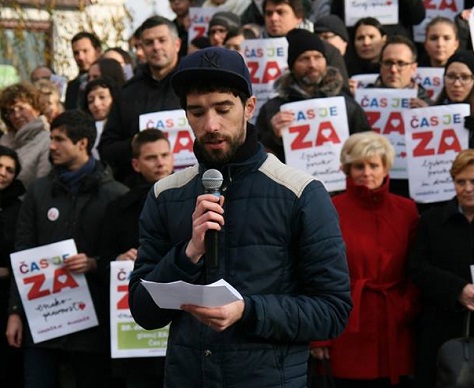Over 60% of the Irish electorate endorsed same-sex marriage in Ireland six months ago, giving European LGBT activists a cause to celebrate. ![]()
A country with a conservative and highly Catholic pedigree showed that it could also be progressive, and the overwhelming victory was a triumph that gave the fight for marriage equality in the European Union a boost of momentum.
Back in June, however, despite the euphoria, I argued that it’s not necessarily a great precedent to put fundamental human and civil rights matters up to a vote, especially when it comes to matters where a majority of voters can ‘gang up’ against an unpopular minority. Instead, it’s far better to leave fundamental matters that deal with core rights to courts instead. Of course, it’s true that Ireland’s governing framework requires a popular referendum on all constitutional matters (which explains why Ireland essentially votes on every EU treaty change).
Still, every victory at the ballot box for marriage equality, and the embrace of the LGBT community of such popular victories, enhances the credibility of all such referenda, giving far more credibility to even those votes where same-sex marriage fails.
* * * * *
RELATED: After Irish vote, what next for same-sex marriage in Europe?
* * * * *
Invariably, in eastern Europe, where the outlook for LGBT rights remain far less sanguine, the Slovenian electorate has now delivered a strong verdict against marriage quality, overturning a legislative definition of marriage by a margin of 63.53% to 36.47%.
Slovenia’s vote has its genesis in legislation passed by its national assembly in March, defining marriage as a union of two people, not specifically between a man and a woman. Opponents of the law forced a referendum, overriding an attempt by legislators to block a vote and prompting a ruling from Slovenia’s constitutional court that essentially stripped the national assembly of the power to declare a referendum unconstitutional.
Polls throughout the year showed a far closer margin between the two camps, with some polls actually giving supporters of the law a lead.
Though the 2015 law will now be overturned, Slovenia will nevertheless continue to recognize same-sex unions, though LGBT Slovenians cannot currently adopt children. Moreover, the referendum only bars the Slovenian parliament from passing a similar law for one year — it’s conceivable that a government could try again later.
Unfortunately, much of Slovenia’s political elite supported the law, including the left-wing prime minister Miro Cerar, a bookish attorney and political neophyte who came to power after the July 2014 parliamentary elections under a new group he initially called ‘Miro Cerar’s Party,’ though it has by now been renamed the Stranka modernega centra (SNC, Modern Centre Party). Since taking office, Cerar’s government has embraced reform, including spending cuts and privatization, and that’s left his government rather unpopular.
The law was also supported by former center-right prime minister Alenka Bratušek, who preceded Cerar, and Slovenia’s social democratic president Borut Pahor. Slovenia’s Violeta Bulc, currently European commissioner for transport, also supports same-sex marriage.
A similar referendum in Slovakia earlier this year put three questions to voters — about same-sex marriage, same-sex adoption and same-sex education in public schools. With a turnout of only slightly more than 21%, however, the referendum fell far short of the 50% threshold it would need to become constitutionally binding.
Months after joining the European Union, in December 2013, Croatia also held a constitutional referendum on same-sex marriage — voters ultimately supported by a 66.28% to 33.72% margin, an amendment to the Croatian constitution defining marriage as between a man and woman only, effectively introducing a constitutional ban on same-sex marriage.
